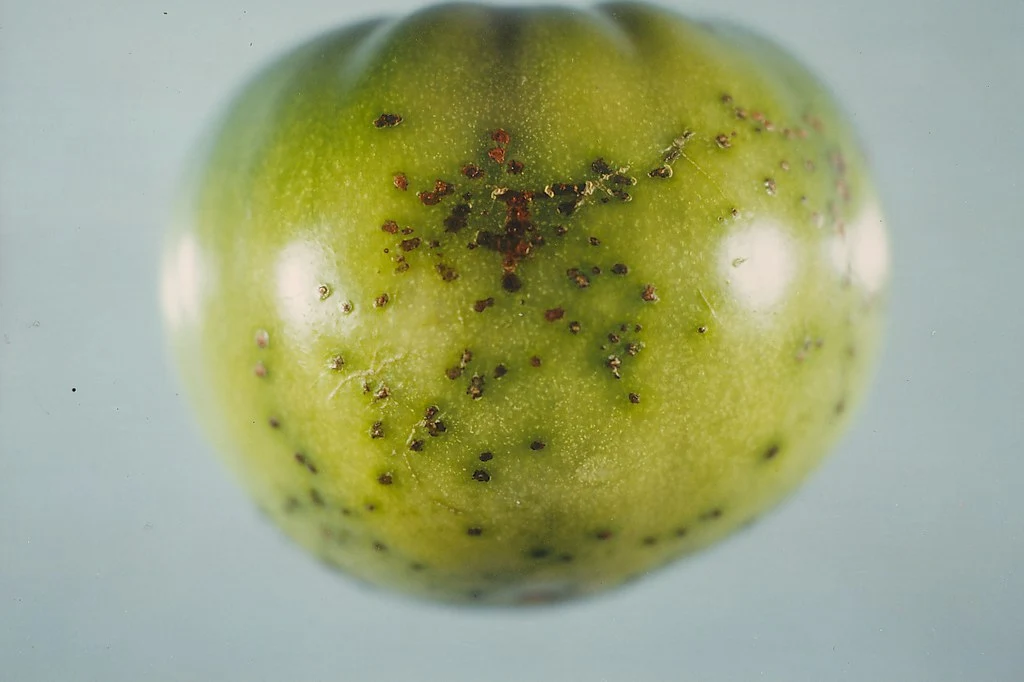Phytophthora infestans Introduction Phytophthora infestans, commonly known as late blight, is a notorious pathogen that poses a significant threat to tomato crops worldwide. This devastating oomycete (a “fungus-like” organism) has gained infamy for causing widespread and destructive outbreaks, leading to substantial economic losses and jeopardizing global food security [1]. This pathogen is best known for […]
Colletotrichum gloeosporioides Introduction Colletotrichum gloeosporioides is a widespread and destructive fungal pathogen responsible for anthracnose disease in various fruit, vegetable, and ornamental plants. It has a wide range of hosts and is considered to be one of the top ten most economically important fungal pathogens (1). It poses a significant threat to both indoor and […]
Colletotrichum acutatum Introduction Colletotrichum acutatum is a fungal pathogen that causes anthracnose in strawberries [1]. Anthracnose describes several fungal diseases affecting various plants, from fruits to grass to trees [2,3]. Colletotrichum acutatum and fellow relatives, Colletotrichum fragariae and Colletotrichum gloeosporioides, can lead to substantial crop losses and economic impact for growers [4,5]. Even though soil-grown […]
E. coli, Listeria, and Salmonella We provide great overviews of many agricultural microorganisms. Subscribe to stay updated! E.coli Escherichia coli (E. coli) is a diverse group of bacteria commonly found in the environment, food, and intestines of humans and animals. While many strains of E. coli are harmless, some can cause severe illness, posing a […]
Xanthomonas hortorum pv. vitians Introduction Xanthomonas hortorum pv. vitians is a bacterial pathogen responsible for bacterial leaf spot in lettuce and other leafy vegetables; this pathogen poses a significant challenge to growers worldwide [1]. Bacterial leaf spot can lead to substantial crop yield losses and severe economic consequences. Historically, outbreaks can cause up to 100% […]
Clarireedia spp. What is Clarireedia spp.? Our guest writer Jessica O’Hanlon, from Earth Microbial, is very familiar with the fungus Clarireedia spp. With golf season approaching for the northern areas, and at the request of our readers, we invited her to write this blog about this grass pathogen. It causes a common turfgrass disease known […]
Track Your Microbiome with Ease: Introducing the Growers’ Portal If you’re a farmer or indoor grower, you know how important it is to maintain the health and robustness of your plants. The microbial communities (microbiomes) in hydroponic systems play a crucial role in determining your plants’ overall health and yield. To help you easily track […]
Sclerotinia minor What is Sclerotinia minor? Sclerotinia minor is a fungal pathogen affecting a wide variety of plants, most notably soybean, lettuce, canola, peanuts, and sunflowers [1–3]. Sclerotinia species, such as Sclerotinia sclerotiorum and Sclerotinia trifoliorum, are responsible for Sclerotinia rots or white moulds, which are of concern to farmers [4]. The infection causes massive […]
Xanthomonas euvesicatoria What is Xanthomonas euvesicatoria? Xanthomonas euvesicatoria is a bacterium that causes bacterial spot disease in plants of tomatoes and peppers [1,2]. It is aerobic and has a long tail (flagellum), allowing it to move in water. Please refer to Figure 1 where the flagellum can be seen on the bottom right side of […]
Pseudomonas syringae What is Pseudomonas syringae? The bacteria Pseudomonas syringae is a common plant pathogen mostly found in stems and leaves [1]. It infects a wide range of plants—including fruit trees, greenhouse vegetables, ornamentals, and field crops. Annually, the bacteria cause billions of dollars of damage worldwide from lost fruits, damaged trees, unmarketable ornamentals, and […]












